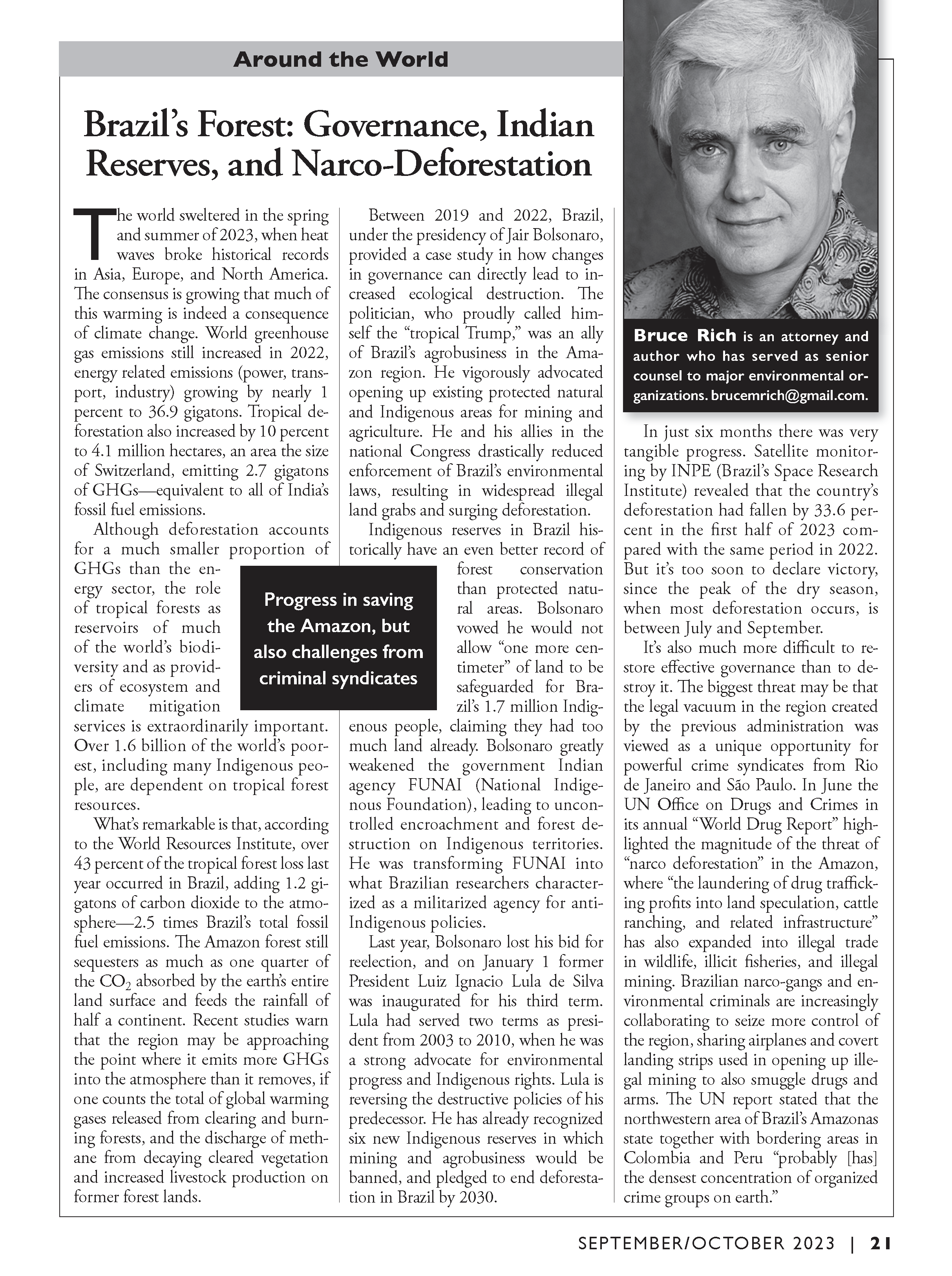- Bruce Rich
- Environmental Forum
- September-October 2023
- 21
Between 2019 and 2022 Brazil, under the presidency of Jair Bolsonaro, provided a case study in how changes in governance directly led to increased ecological destruction. Bolsonaro, who proudly called himself the “tropical Trump,” was an ally of Brazil’s agrobusiness in the Amazon region. He vigorously advocated opening up existing protected natural and indigenous areas for mining and agriculture. He and his allies in the Brazilian Congress drastically reduced enforcement of Brazil’s environmental laws, resulting in widespread illegal land grabs and surging deforestation. . Bolsonaro vowed he would not allow “one more centimeter” of land to be safeguarded for Brazil’s 1.7 million indigenous people, claiming they had too much land already. Bolsonaro greatly weakened the government Indian agency FUNAI (National Indigenous Foundation).
In October, 2022 Bolsonaro lost his bid for reelection and on January 1 2023 former President Luiz Ignacio Lula de Silva was inaugurated for his third term. Satellite monitoring by INPE (Brazil’s Space Research Institute) revealed that the country’s deforestation had fallen by 33.6 percent in the first half of 2023 compared with the same period in 2022. The biggest threat may be that the legal vacuum in the region created by the previous administration was viewed as a unique opportunity for powerful crime syndicates from Rio de Janeiro and São Paulo. In June the UN Office on Drugs and Crimes in its annual World Drug Report highlighted the magnitude of the threat of “narco deforestation” in the Amazon, where “the laundering of drug trafficking profits into land speculation, cattle ranching and related infrastructure” has also expanded into illegal trade in wildlife, illicit fisheries, and illegal mining.



